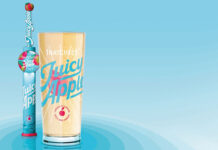Soft drinks offer should cover all bases if licensees are to benefit

ONCE upon a time, a full-sugar cola, an orange juice and perhaps a lemonade constituted a soft drinks range for many pubs and bars; but as the trade landscape has shifted down the years, so too have consumer expectations.
ONCE upon a time, a full-sugar cola, an orange juice and perhaps a lemonade constituted a soft drinks range for many pubs and bars; but as the trade landscape has shifted down the years, so too have consumer expectations.
Gone are the days when two or three soft drinks was considered acceptable.
Instead, as with all other drinks categories, consumers are demanding choice and quality when it comes to soft drinks – and if the product has real provenance, so much the better.
The trend for craft products, coupled with a general shift towards healthier lifestyles, not to mention the implementation of the soft drinks industry levy (the so-called sugar tax) next April, means there’s no shortage of factors to take into consideration when building a range.
Soft drinks producers and distributors told SLTN that bar and restaurant owners must give serious thought to the soft drinks they stock if they are to fully capitalise on the category.
Carol Saunders, head of customer marketing at Highland Spring Group, said licensees “should be constantly aware of market trends – be it consumer trends or seasonality – and the impact this has on consumer preference within soft drinks”.
“Whilst an operator won’t want to frequently change their offer, being aware of these changes and making appropriate tweaks to their menu will keep it relevant,” said Saunders.
“Health has been a hot topic with consumers for a while and the introduction of the sugar levy is likely to further drive the media and consumer focus on health and wellbeing. As a result, low and no-sugar soft drinks are becoming increasingly popular in the on-trade and we are seeing more innovations and reformulations.
“However, plain water remains the only soft drink on-shelf that naturally contains no calories, sugar, preservatives or additives, providing a constant for consumers when the sugar tax is introduced. Licensees should be aware of this and the opportunities available to tweak their range to make the most of the changing consumer landscape.”
The importance of stocking a selection of healthier options was underlined by Russell Goldman, commercial director for licensed and foodservice at Britvic.
Citing consumer interest in healthy living as continuing to have a “huge impact” on the sector, Goldman advised operators to stock a range of soft drinks which offers “an exciting, tasty alternative to alcohol” and which includes lower sugar options.
“Consumers today want an experience and they expect a good choice,” he said.
“You need to provide a wide selection of soft drinks, tailored to your customers so it’s important to talk to your customers and find out what they want.”
And it’s not just an outlet’s clientele that should be considered when it comes to building a soft drinks range.
According to Amy Burgess, trade communications manager at Coca-Cola European Partners (CCEP), many pubs are now tapping into the role soft drinks play at different times of day.
“What a consumer wants to drink on a Saturday night is very different to someone visiting an outlet at 11.30am on a week day to catch up on emails,” she said.
“As such, ensuring a quality experience for soft drinks as well as alcohol is critical so that they don’t miss out on what is an extremely competitive landscape for daytime, out-of-home moments.”
Steve Carter, sales and marketing director at Frobishers Juices, agreed, advising operators to “put themselves in their customers’ shoes” when deciding which soft drinks to stock.
“You may find your customers opt for a long, thirst-quenching drink during the day, but would prefer a more sophisticated drink that they can sip during the evening,” said Carter.
“Ensure your range has the breadth and depth to meet all these considerations, and strive to offer your customers something new and exciting rather than making them settle for the usual suspects.”
An outlet’s food offer is another important consideration when it comes to soft drinks.
Adrian Troy, marketing director at Irn-Bru and Strathmore owner AG Barr, said sales of soft drinks are particularly strong in food-led outlets.
“Taking advantage of food is important,” he said.
“In outlets where food is served, consumption of soft drinks is higher; particularly as a result of family dining.”
Nick Yates, sales and operations director at Vimto Out Of Home, stressed the importance of catering for different age groups when it comes to soft drinks.
“Don’t forget the basics,” said Yates.
“Dispensed soft drinks are also hugely important product in the on-trade, where back-bar and fridge space are at a premium, and Vimto Out Of Home has an unrivalled selection of products it can provide ‘on the gun’.”
[box style=”4″]
Soft drinks industry levy at a glance
WHAT?
The so-called sugar tax is a levy that will be applied to the production and importation of soft drinks containing added sugar.
The levy will apply to the producers and importers of these types of drinks. It will have a lower rate which will apply to added sugar drinks with a total sugar content of 5 grams or more per 100 millilitres and a higher rate for drinks with 8 grams or more per 100 millilitres. It will not apply to a drink where no sugar is added. Alcoholic drinks with an ABV of up to 1.2% are included in the levy.
WHO?
The levy is likely to affect UK producers of soft drinks, importers of soft drinks, retailers of soft drinks and consumers who buy soft drinks in the UK. There will be an exemption for the smallest producers and also importers of soft drinks from the smallest producers abroad.
WHY?
The levy on soft drinks is part of the government’s plans to reduce childhood obesity by removing added sugar from soft drinks. The levy is designed to encourage producers of added-sugar soft drinks to reformulate their products to reduce the sugar content and to reduce portion sizes for added-sugar drinks; encourage importers to import reformulated drinks with low added sugar; and to encourage consumers of soft drinks to move to healthier choices.
WHEN?
The levy will take effect from April 2018.
[/box]
























